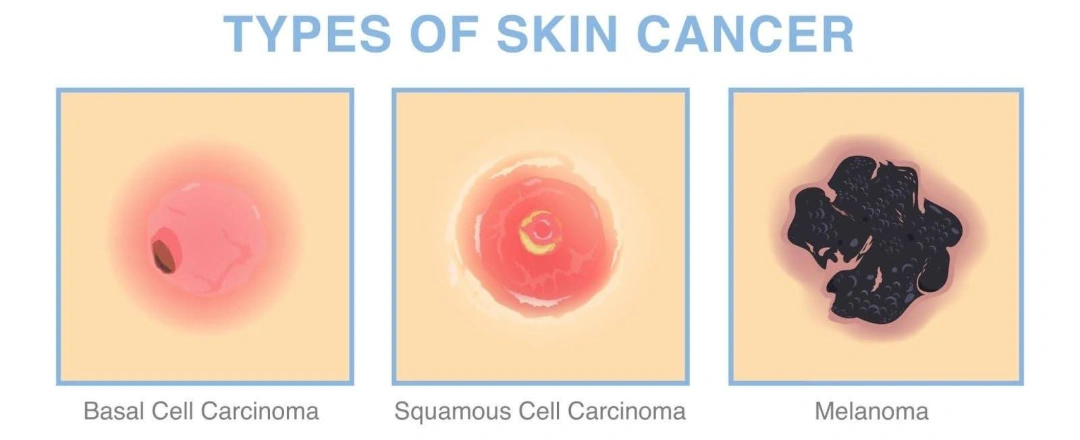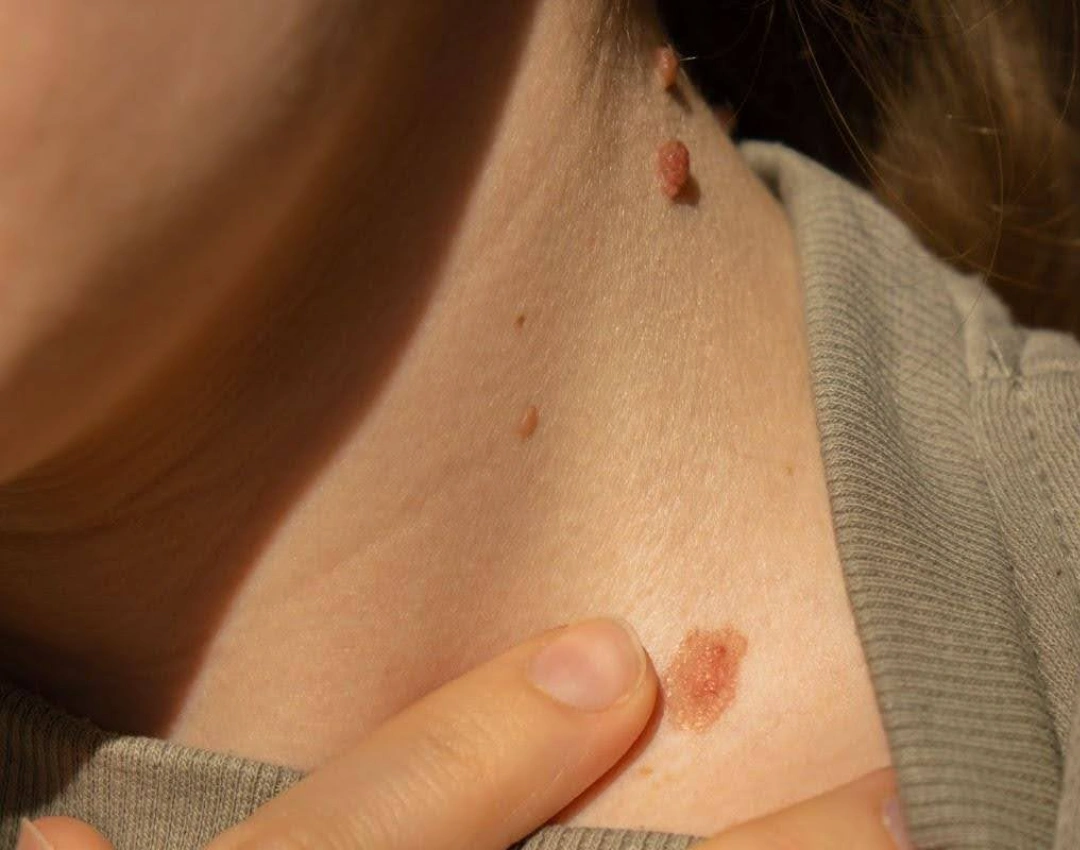At Livingstone Dermatology, we understand that your skin is a reflection of your health and well-being. We are committed to the latest advancements in dermatological science, and dedicated to providing you with quality care.

Skin cancer is the abnormal, uncontrolled growth of skin cells caused by mutations in their DNA. These genetic changes trigger rapid cell proliferation, forming malignant tumours. While skin cancer most commonly develops in areas frequently exposed to ultraviolet (UV) radiation from the sun or tanning beds, it can also appear on parts of the body that receive minimal sun exposure.
There are three main types of skin cancer:

Skin cancer develops when genetic mutations alter the normal growth cycle of skin cells, causing them to multiply uncontrollably and form malignant tumours. The primary mechanism behind these mutations is DNA damage, which disrupts the regulatory signals that control cell division and apoptosis (programmed cell death).
One of the most significant triggers of this damage is ultraviolet (UV) radiation, which penetrates the skin and induces structural changes in DNA, particularly in the tumour suppressor genes responsible for halting abnormal cell growth. When these protective mechanisms fail, the affected cells begin to proliferate unchecked, leading to tumour formation. In some cases, additional genetic changes, such as mutations in the p53 gene or activation of oncogenes, further accelerate malignant transformation.
Over time, these cancerous cells can invade surrounding tissues and, in more aggressive forms like melanoma, gain the ability to metastasise, spreading to distant organs through the lymphatic system or bloodstream.
Recognising the early signs of skin cancer is essential for timely diagnosis and treatment. Symptoms can vary depending on the type of skin cancer, but may include:

While skin cancer can affect anyone, certain factors increase the likelihood of developing the condition, even in a tropical climate like Singapore. Individuals at higher risk include:
Although Singapore’s high humidity may limit excessive sun exposure compared to drier climates, year-round UV radiation remains a significant factor, which makes it crucial to follow sun protection measures and regular skin checks.
When it comes to diagnosing skin cancer, the goal is to accurately identify skin cancer at its earliest stages. This is because timely and precise diagnosis is crucial for effective treatment. A dermatologist will employ a combination of the following methods for diagnosing skin cancer:
The main goal of treating skin cancer is to remove cancerous cells while preserving as much healthy tissue as possible. Treatment options vary based on the severity of the condition, and our specialists will recommend the most suitable approach for each patient.
Despite how common it is, it is important to know that skin cancer is highly manageable and treatable, especially in its early stages. That is why it is encouraged to undergo routine check-ups to catch any changes earlier on.
If you have a family history of skin cancer or have noticed any changes to any of your moles, do contact us to schedule an appointment. Our clinical team at Livingstone Dermatology will attend to you and guide you on the journey to recovery.
Can people with dark skin develop skin cancer?
Yes, individuals with dark skin can develop skin cancer, though their risk is lower compared to those with lighter skin tones. It’s important for everyone, regardless of skin colour, to practice sun protection and perform regular skin checks.
Can skin cancer develop in areas not exposed to the sun?
Yes, while skin cancer commonly occurs on sun-exposed areas, it can also develop on parts of the body that receive little or no sun exposure, such as the palms, soles, and under the nails.
Is skin cancer preventable?
While not all cases are preventable, reducing sun exposure, avoiding tanning beds, wearing protective clothing, and using broad-spectrum sunscreen can significantly lower the risk of developing skin cancer.
How often should I perform self-examinations for skin cancer?
It’s recommended to perform a thorough self-examination of your skin once a month to detect any new or changing lesions early.
Does a single sunburn increase my risk of skin cancer?
Experiencing sunburn indicates DNA damage to your skin cells, which can accumulate over time and increase the risk of skin cancer. It’s essential to protect your skin from UV radiation to minimise this risk.
Can skin cancer be cured?
When detected early, most skin cancers can be effectively treated and cured. However, if left untreated, certain types can spread to other parts of the body, which can make treatment more challenging.
Are tanning beds safer than sun exposure?
No, tanning beds emit ultraviolet radiation that can damage skin cells and increase the risk of skin cancer, similar to sun exposure. It’s advisable to avoid using tanning beds altogether.
What should I do if I notice a suspicious spot on my skin?
If you observe any new, changing, or unusual spots on your skin, it’s important to consult a dermatologist promptly for a professional evaluation.